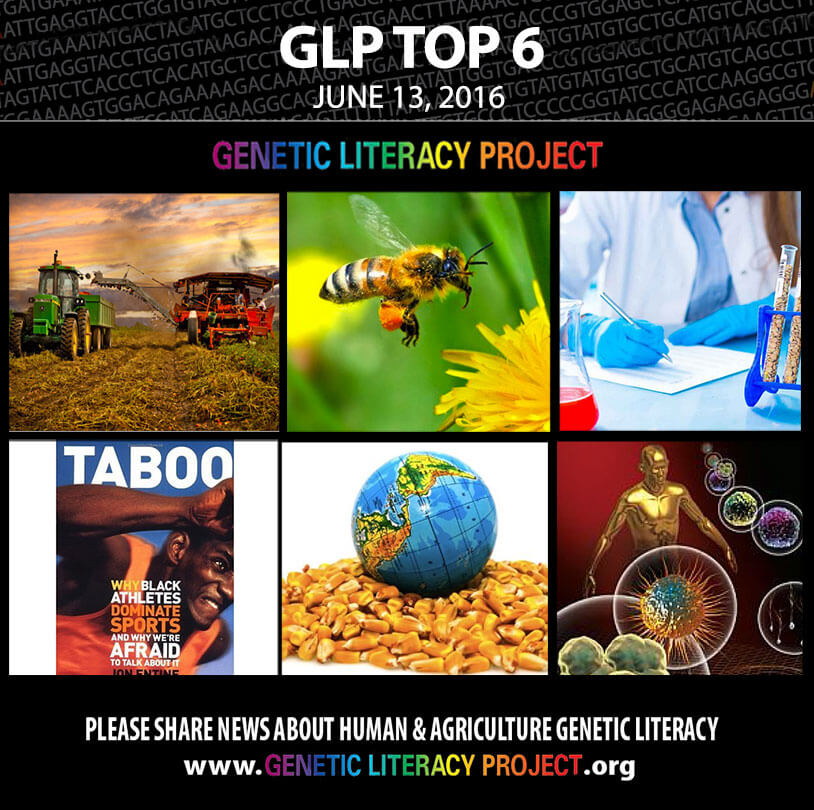From this past week, here are the #GLPTop6 among many great stories on human and agriculture genetics around the world. Please share and help spread the news!
- Do you really understand modern farming? Scientist examines 10 truths of GMOs and organics by Layla Katiraee
- Hawaii honey bee die-off points to likely culprits—Not pesticides, but varroa and viruses by Andrew Porterfield
- What is CRISPR/Cas9 and other New Breeding Technologies (NBTs)? by Genetic Literacy Project
- Jon Entine on why ‘race’ matters in shaping the world’s elite athletes by Jon Entine
- Are there environmental and economic benefits to GMO crops? Study claims $150+ billion since ’96 by Nicholas Staropoli
- Autoimmune diseases: Why our body sometimes turns on itself by Emily Sutherlin
All this and more! Be sure to sign up for the newsletters and follow us on Social Media. We are on Facebook, Google+, Twitter, Pinterest, and Reddit! Please feel free to share all the news about human and agricultural genetic literacy!



Genetically engineered seeds have a different global sequence in DNA from combining two species’ DNA, than non-genetically engineered seeds, otherwise the seed could not receive utility patents.
Genetically engineered food is not patented. Genetic engineering is a process. There are seeds that are patented but no foods. Many foods that are the result of genetic engineering are molecularly identical to the non GMO variety, such as oil made from GM canola.
Thank you for the clarification.
I am not sure I understand what you mean when you say “different molecular structure”. If you mean GM plants have a different genotype, then I understand. But the difference between different varieties of the same plant is a different genotype. So that is not unique. BTW, the ability to patent a plant goes back to 1930, so seed companies have been patenting plants long before biotechnology. And these are utility patents, not copyright patents.
Thanks